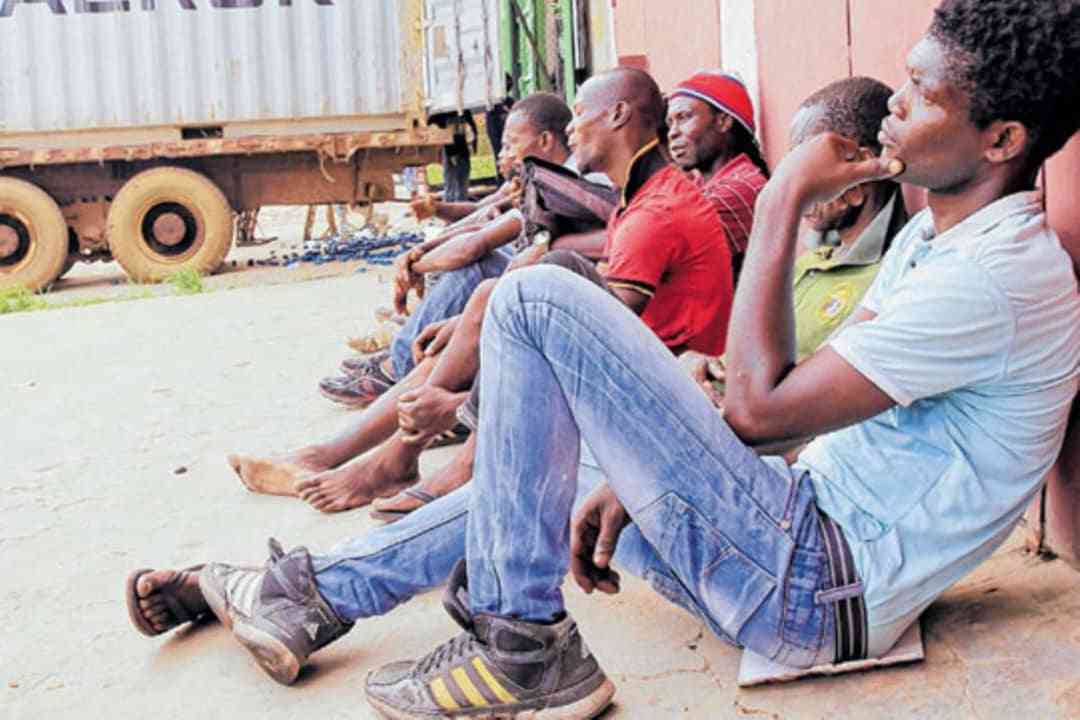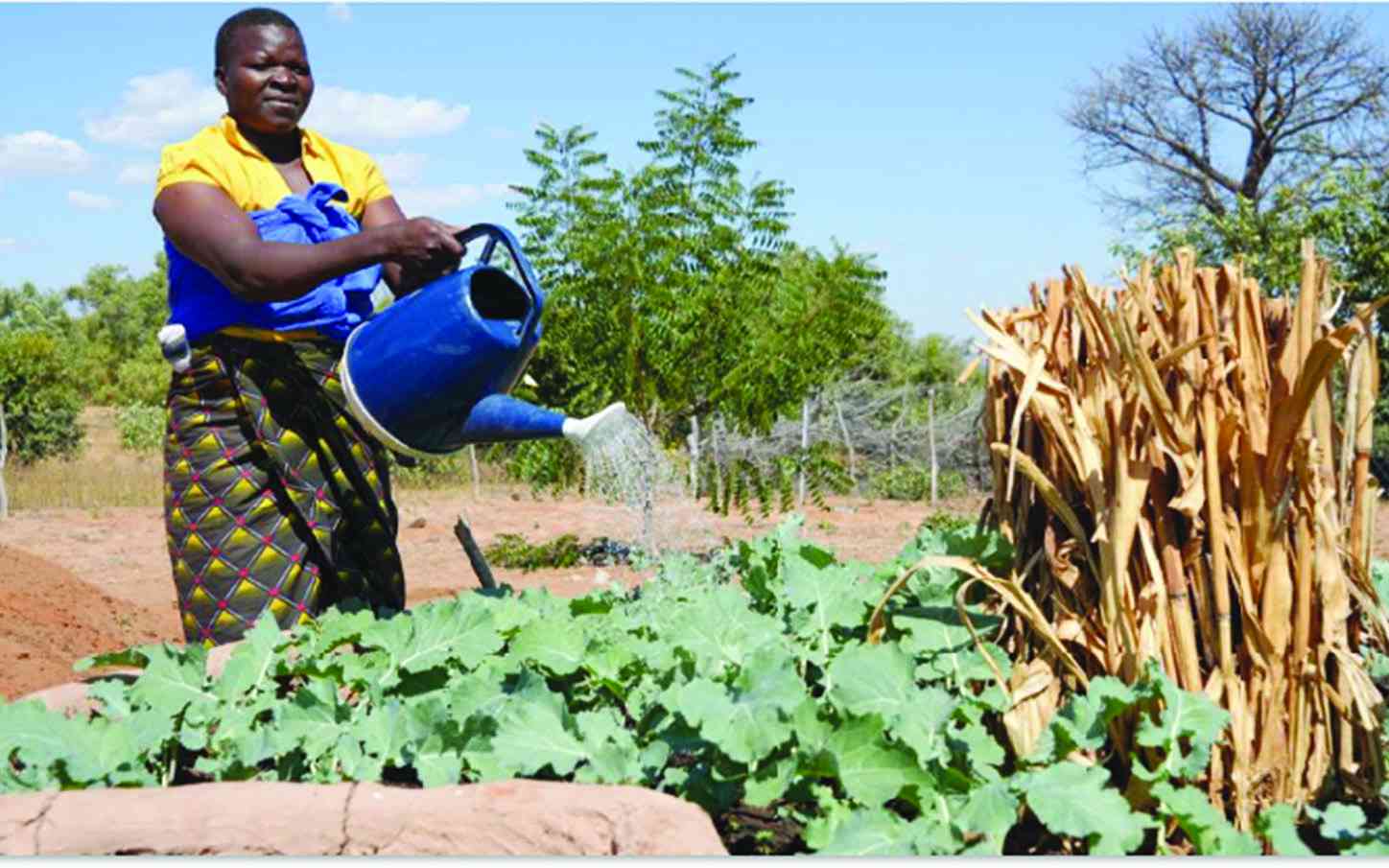
For many young Zimbabweans, the daily grind is no longer about climbing corporate ladders or pursuing dream careers.
It is a precarious dance between hustling for inadequate earnings and the constant pressure of supporting friends and family in a crumbling economy.
This pressure has birthed a phenomenon known in street lingo as “ghetto tax” or siya something wangu chero dollar, which means “just give us even a dollar.”
The “ghetto tax” is a symptom of Zimbabwe's ailing economy.
Years of mismanagement and corruption have led to high inflation, limited job opportunities, and widespread poverty.
Young people, who make up a significant portion of the population, are excessively affected.
Thirty-one-year old Tinashe Munemo, a fuel attendant from Harare’s Waterfalls suburb, exemplifies this struggle.
Every time when he is about to go home after work, the legion of his friends at Mandaza shops gives him a slight headache.
- New Perspectives: Gold coins alone will not tame Zim’s inflation
- Fears of jobs carnage as crisis deepens
- Binga to Rwanda: ED’s dilemma
- New Perspectives: Gold coins alone will not tame Zim’s inflation
Keep Reading
Munemo’s bus stop is at Mandaza shops and he has to navigate a harsh reality, running away from unemployed friends who survive by begging for a few dollars.
“At my work place they give us US$2 every day for transport, but usually I use US$1 per day so when I meet a friend who is struggling to buy even a weekly WhatsApp bundle, sometimes I will give them the remaining US$1,” Munemo said.
“We are struggling, whether you are a graduate or not.
“The only problem is that our friends who see you going to work always think we are getting paid huge amounts and for that reason they expect you to give them money.”
Munemo said there is a general belief in the ghetto that those who work must share whatever they have with the unemployed.
“If you don’t help them, it will look like you are not being empathetic,” he said.
“I earn US$250 per month, I pay US$150 in rentals and I have a wife and an ECD child plus ghetto tax.
“I am not forced to help my friends but sometimes I get to understand their situation, especially those who are graduates.”
Munemo's "ghetto tax" experience is not a formal levy, but a social obligation, a silent understanding within the communities.
Among his friends are university graduates, while others dropped out due to lack of funds, and spend their days navigating the harsh realities of unemployment.
They rely on the generosity of those like Munemo, often resorting to borrowing from a ZimLoan, a microfinance institution offering small, quick loans as low as US$9.
The situation is mirrored across the country where the "ghetto tax" is not a sustainable solution.
It is a temporary measure, a band-aid on a gaping wound.
In Bulawayo, 28-year-old Mqondisi Khumalo, a recent Political Science graduate, has lost hope in getting a job in Zimbabwe.

Despite the fact that he is a graduate, his story resonates with many youths who did not make it to university.
"Even though I am a graduate, I usually bother my childhood friend Mthabisi Ndlovu to buy me data even though his salary is barely enough to cover his transport and rent," he explains.
"Now we are called tax collectors, Imagine I still stay with my parents at 28 years, it’s a struggle.”
Ndlovu’s words tell the sentiments of countless young Zimbabweans, trapped in a cycle of hardship, hoping for a future where their hustle translates into something more than just survival.
The “ghetto tax” is not unique to specific social strata, it is a symptom of a larger economic crisis.
Zimbabwe's unemployment rate remains alarmingly high, leaving a generation of young people struggling to find meaningful work.
This desperation fuels the cycle of dependency, where those with even the smallest income are expected to support a network of unemployed friends and family.
Latest statistics from the Zimbabwe National Statistics Agency (ZimStat) reveal that only 46,3% of Zimbabwe’s working age population are employed.
In its 2023 4th Quarter Labour Force Survey report, ZimStat disclosed that the working age population was 8 639 522, of which 4 003 121 were in active employment.
Thomas Chauke, a retired primary school teacher, told The Standard that lack of economic opportunities was putting a strain in relationships.
“They understand the need to support each other, but the constant pressure can be overwhelming,” Chauke said.
“It creates a sense of guilt and resentment, even among close friends.
“Yes, we have to support each other. But something needs to change.
“We need real opportunities, not just handouts.”
Economist Gift Mugano said youths find themselves in a catch 22 situation.
He believes that some youths have lost hope in getting jobs and see a university degree as worthless in the face of the rising generation.
According to Mugano, there are two categories of youth - those who are hustling, working in the informal sector regardless of the fact that they have degrees and those who are now wasting their life because of depression.
Veteran talk show host Rebbeca Chisamba, popularly known as Mai Chisamba, acknowledged that some youths have developed an embarrassing culture of always asking for financial assistance from their friends.
“Changova chijairira kupemha” (It has become a bad norm to beg),” Chisamba said.
“Some have graduated to even going to bottle stores to ask their friends to buy them beer.
“Hanzi ndichaireo one murungu” (please buy one beer for me Boss).
“It's embarrassing to see the young generation surviving by bothering their friends in the name of "ghetto tax."
Chisamba said begging for handouts is not sustainable.
“Yes, we are living in difficult times, but we should not burden other people,” she said.
“I believe youths can use their hands or other innovative ideas to survive without waiting to be given money.
“Some are investing in comedy to get a few dollars to survive.
“Yes, once or twice is reasonable when someone is in a crisis, not all the time”
Parliamentary portfolio committee on public service, labour, and social welfare, Dexter Malinganiso said the MPs have never specifically deliberated on the welfare of the youths.
He, however, said they have been advocating for budget increment which can also help to improve the welfare of the youths.
“I will say we have never had an agenda where we discuss the welfare of the youth as a group, but the welfare of individuals in Zimbabwe who may happen to be in need,” Malinganiso said.
“There are programs running at the moment which include food deficit mitigation which does not discriminate against the youth.
“We have advocated for budget increments and budget disbursements to make certain that the programmes are well implemented.”
However, the weight of responsibility falls heavily on the shoulders of those fortunate enough to have found some form of employment.
They are the lifelines for their friends and families, and sometimes, entire communities.
But even their paltry earnings are not enough to escape the clutches of poverty.










